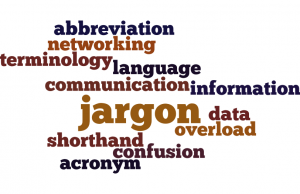In 1920, a little-known author Arnold Munk wrote a book titled The Little Engine That Could which then began being sold door to door through the My Book House series. The book’s story line centered on a little railroad steam engine who attempted to pull a long train over a high mountain. The little engine agrees to attempt this challenging feat using the mantra “I think I can, I think I can”. It eventually succeeds due to the faith in its abilities to achieve this goal.
Fast-forward to 1971 when a then obscure researcher named Albert Bandura began to study the role that a person’s belief in their ability to achieve any goal, known as self-efficacy. The question is how do we build this belief in our abilities? Bandura identified four significant sources of these efficacy expectations: performance accomplishments, vicarious experiences, verbal persuasion, and emotional arousal. These are valuable lessons to use as students transition from college to career and beyond.
Vicarious experience is the idea that if you see someone else completing a job-related challenge, you gain the confidence that you can also accomplish such a challenge. It is the monkey see, monkey can do idea in its most basic form. Verbal persuasion often comes in the way of encouraging words or actions. This is the easiest to implement and as such is often thought to have the least value, but used correctly with sincerity is can play a key role in developing efficacy. Emotional arousal is often associated with anxiety which can debilitate performance. Developing coping skills to deal with stressful situations helps limit this performance detractor.
Bandura found that performance accomplishments were the most impactful in building an individual’s personal efficacy. In my doctoral research with freshmen college students I found this most often manifests itself in earning grades on tests or projects. Students also gained this sense of accomplishment in performing community service or in service learning programs where they aid others while achieving a personal or academic goal.
A student’s participation in internships and co-ops has been shown to have a significant impact on their self-efficacy. This career self-efficacy has been aided by structured company support during these employment opportunities. Companies use of mentors, self-produced seminars that help develop 21st century career skills, weekly performance review sessions, and assigned projects with a series of specific timely outcomes are just a few programs whose product is increased self-efficacy of those involved.
Arnold Monks story of this little engine that could symbolizes the importance that efficacy plays in creating an environment of possibility and a can do attitude in each current and future employee. The belief that a goal can be achieved is the most vital component necessary for achieving success in ones endeavors. As colleges and universities look to retool their curriculums to produce a prepared and engaged intellectual product that can succeed in industry, they should ensure that this process focuses on increasing the level of self-efficacy of each future graduate. Each student must believe they can!

